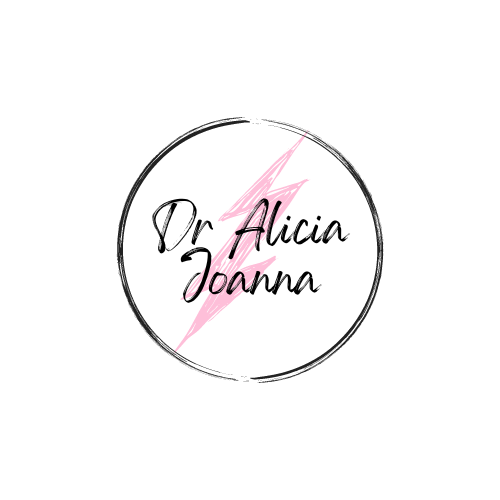Overcoming Fears

What to do in the face of discomfort
There is clearly a lot to be gained by ‘feeling the fear and doing it anyway’ - but it’s easier said than done. I’ve reflected quite a lot on why I’m afraid and what I can do about it. Whenever I have been able to overcome fear, it’s led to all my achievements in life, all the learning and growth. It’s the price to pay for these things. Or perhaps, even, the signal that something is worth pursuing.
Why are we afraid of things?
At what point does the fear really kick in? Perhaps it starts with the perceived ‘danger’ entering our peripheral vision: that moment you see the job description for your dream job, watch the video that inspires an idea, or meet someone who’s done something incredible that you can also suddenly imagine yourself doing. That’s likely where the voice starts whispering ‘but it’s risky’, ‘but you’ll be humiliated’ or ‘but you’ll fail’.
Where does the voice come from? My firm belief is it’s a survival instinct. The problem is, our ‘risky actions’ these days are not the same as hunting for a lion or swimming across a river in search of food. Our biology is lagging behind fast-paced, relatively safe modern life.
Knowing this is the first step. These thoughts really do stop people from doing things that are objectively extremely safe. Public speaking, for example, is perfectly safe and yet ‘all eyes on me’ is perceived as ‘I’m lunch’ by the survival instinct part of our brains.
And yet, something pulls us to the thing which we fear. Some say it’s a sign that we’re on the right path, i.e. the obstacle is the way. It’s mysterious how something can both excite us and feel really right, and yet scare us to the point of not wanting to do it. Accepting and overcoming fear is therefore probably the only way to achieve and progress.
How to overcome fears
Here comes the crucial step: what are you going to do? Move forward and despite the discomfort, the uncertainty, push ahead anyway? Or sit in that fear, discomfort and confusion, overthinking it. Are you going to fight, flight or freeze?
You could also use the opportunity to examine the doubts - what are they saying? Are they based on a past event and hence your brain’s ‘survival mechanism’ is trying to protect you and keep you safe?
One very helpful approach is ‘fear setting’, or worst case scenario analysis. With this technique, you can ‘follow’ the fear and come to the rational conclusion that even if the thing you’re pursuing or risking goes dreadfully wrong, you’ll still be absolutely fine. The danger is not really life threatening.
Another technique that’s really helped me is to have more self compassion or self understanding. Rather than ‘fighting’ the fears, trying to block them out or not acknowledge them, you can start to listen to that part of you that’s scared. You can actually realise, it’s perfectly normal and understandable. This really takes the edge off.
Once you decide that you want the thing more than you’re afraid of it, you realise that the worst case scenario is not all that bad or life threatening, and you see it’s perfectly normal to have some self doubt, you can move forward. If you overcome the fear, something magic happens, you grow outside of your borders. You remould yourself, expand your potential. It doesn't matter what stage you are in life, there’s always a chance to do this. Because everyone has fears and the ‘fearful thing’ grows - maybe instead of applying for a postgraduate program it’s now applying for a promotion, or speaking in front of an ever increasing audience size at conferences, etc. The bar gets raised because you’ve grown and are capable of more.
What do we learn from our fears?
If you want anything of real value in life, if you truly want to live authentically and fulfil your potential, then discomfort is inevitable. It's a necessary part of the journey. Even if you decide to play it safe and do nothing, you'll still end up living with the discomfort and regret of what could've been - of missed opportunities and a life not fully lived.
In my own experience, the fact that I had applied and been accepted to two PhD programs in the years before I started my doctorate meant it was ‘calling’ me - and I didn’t do anything. As a result, I lived with a constant, nagging discomfort – the discomfort of not following my true calling, of not living up to my full potential.
Fear and discomfort don’t have to be negative - they often signal that we're ready for growth, ready to take that next step forward. Uncomfortable situations and that voice of self doubt frequently arise precisely when we're being called to expand, to evolve.
Yes, discomfort is inevitable when you're pursuing anything meaningful, but it doesn't have to be the focus. Instead, train your mind to focus on the potential for new, enriching experiences. Focus on what you stand to gain – in terms of personal growth and fulfilment. Try to "feel into" just how amazing and liberating it is to boldly follow your heart's path, to keep moving forward.
There's a momentum that comes from facing your fears. It's uncomfortable, yes, but it's also electrifying, expansive, and deeply soul-satisfying in a way that playing it safe can never replicate.
So embrace the discomfort. Let it be your signal that you're finally answering the call to something greater.
